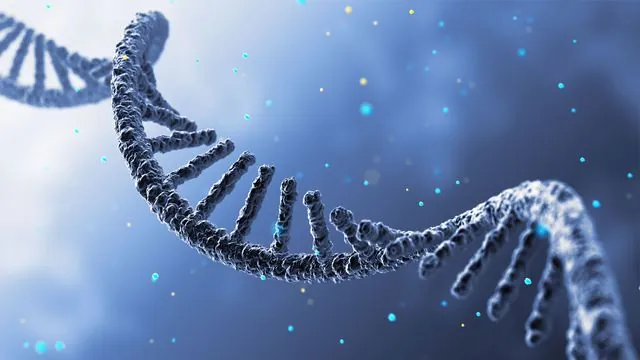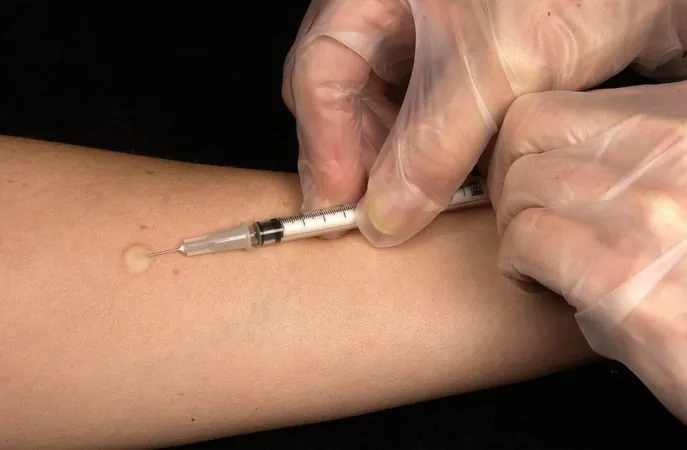
Groundbreaking Discovery in DNA and RNA Epigenetics Could Revolutionize Cancer Treatment
2025-01-20
Author: Michael
Introduction to DNA and RNA Epigenetics
Our genes hold the key to the intricate functions of our bodies, but their expression must be carefully controlled to ensure that each cell operates effectively. This is where the fascinating field of DNA and RNA epigenetics comes into play—encompassing a set of regulatory mechanisms that serve as "markers" to modulate gene activity without altering the underlying DNA or RNA sequence itself.
New Study Challenges Conventional Views
Traditionally, researchers viewed DNA and RNA epigenetics as separate entities, each fulfilling distinct roles in gene regulation. However, a groundbreaking study published in the journal *Cell* has upended this notion. Led by François Fuks from the ULB Faculty of Medicine and the Jules Bordet Institute, the research reveals that DNA and RNA epigenetics may be more intricately linked than previously believed. Their findings suggest that these two mechanisms work in concert to create a finely-tuned regulatory system, where DNA epigenetics organizes gene accessibility and RNA epigenetics dynamically modulates gene expression.
Importance of Combined Regulatory Mechanisms
This study highlights the significance of jointly applying these two regulatory markers. When used together, they facilitate an increased activation of specific genes. Conversely, if either process fails, gene activity can suffer. Fuks and his team illustrate the critical importance of this interplay during crucial developmental stages, such as cell differentiation, particularly in embryonic stem cells, where precise regulation of gene expression is paramount for healthy development.
Implications for Cancer Treatment
The implications of this research are profound, heralding a novel perspective on gene control. With these findings, scientists are gaining deeper insights into cellular processes and unraveling how disruptions in these epigenetic mechanisms could lead to diseases like cancer.
Innovative Approaches to Epigenetic Drugs
Excitingly, this interdependent framework of gene regulation opens the door to potential new cancer treatments. By harnessing the combined power of DNA and RNA epigenetics, researchers are exploring the possibility of developing innovative "epigenetic drugs" that simultaneously target both DNA and RNA. This dual approach may lead to more precise and personalized therapies, allowing for tailored treatments that could restore balance in the erratic behavior of diseased cells in cancer patients.
Future Research Directions
Prof. Fuks' team is already diving into further research directly stemming from this publication, aiming to validate the clinical applicability of their findings. Their ongoing studies will investigate the potential of epigenetic therapies that act on both DNA and RNA, providing hope for more effective methods in the battle against cancer.
Conclusion
This revelation not only represents a significant step forward in our understanding of gene regulation but also brings us closer to more effective and personalized cancer therapies. Keep an eye on this emerging research—it could reshape the future of cancer treatment and improve countless lives.









 Brasil (PT)
Brasil (PT)
 Canada (EN)
Canada (EN)
 Chile (ES)
Chile (ES)
 Česko (CS)
Česko (CS)
 대한민국 (KO)
대한민국 (KO)
 España (ES)
España (ES)
 France (FR)
France (FR)
 Hong Kong (EN)
Hong Kong (EN)
 Italia (IT)
Italia (IT)
 日本 (JA)
日本 (JA)
 Magyarország (HU)
Magyarország (HU)
 Norge (NO)
Norge (NO)
 Polska (PL)
Polska (PL)
 Schweiz (DE)
Schweiz (DE)
 Singapore (EN)
Singapore (EN)
 Sverige (SV)
Sverige (SV)
 Suomi (FI)
Suomi (FI)
 Türkiye (TR)
Türkiye (TR)
 الإمارات العربية المتحدة (AR)
الإمارات العربية المتحدة (AR)